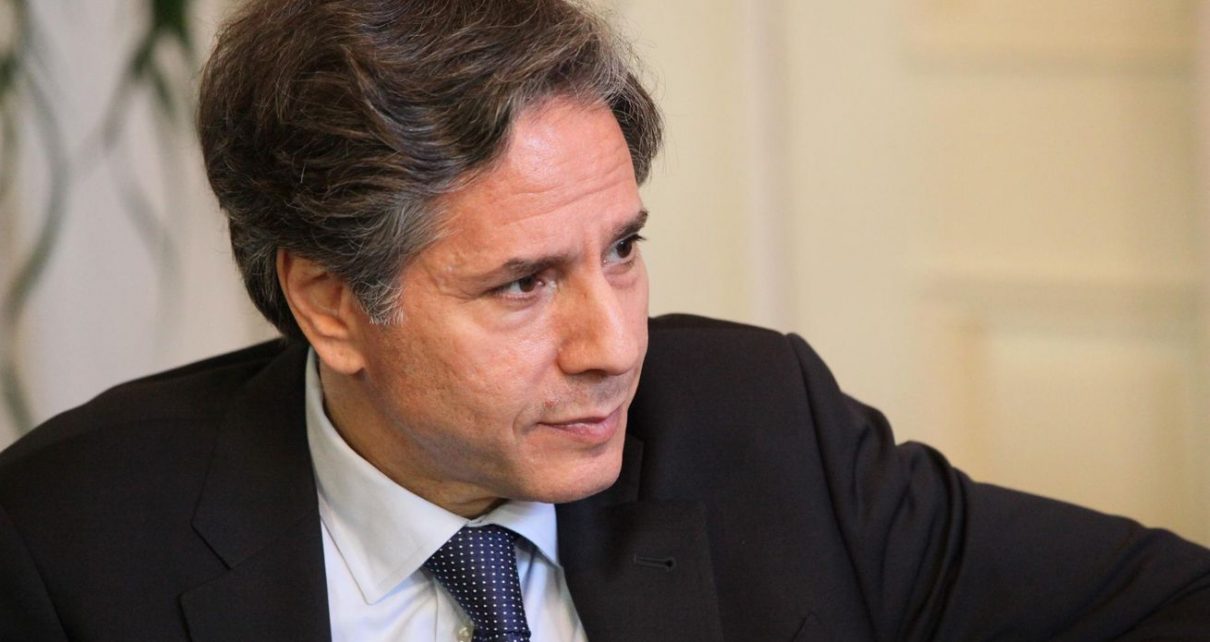
Blinken is about to become one of the most important figures in the Biden administration.
President-elect Joe Biden is expected to pick Tony Blinken, his longtime foreign policy aide, to be his secretary of state, making Blinken one of the most important figures in the incoming administration.
It’s no surprise that Biden is planning to tap Blinken to lead the nation’s premier foreign affairs agency, news that was first reported by Bloomberg News and confirmed by other outlets. The 58-year-old has served Biden since 2002, rising to become the staff director of the Senate Foreign Relations Committee when then-Senator Biden chaired it. Blinken then became Biden’s national security adviser while he was vice president, moving on to the State Department in President Obama’s second term to be the agency’s No. 2.
While some assumed Biden would pick Blinken to be his national security adviser, it appears the incoming president prefers his trusted staffer represent the administration and the country abroad.
Biden and Blinken have a strong mind-meld, except on one key issue
The choice of Blinken, a onetime New Republic writer, will likely anger some on both the left and the right. Progressives might not like him for having praised President Donald Trump’s bombing of Syria in retaliation for its use of chemical weapons on civilians, or his having advocated for the US to arm Ukraine against Russia’s invasion. Conservatives, meanwhile, won’t like that he was a fierce advocate for the Iran nuclear deal.
But Biden was always going to entrust Blinken with a substantive foreign policy position in his administration, regardless of what critics said of him. “He has the judgment, the raw substantive knowledge, and the ability to interface with leaders to do any job his country could ever ask of him,” Biden told Politico of Blinken in 2013.
During the 2020 campaign, Blinken was Biden’s chief surrogate and spokesperson on foreign policy. He gave interview after interview after interview to explain how Biden would handle global affairs as president.
“Joe Biden would reassert American leadership, leading with our diplomacy. We’d actually show up again, day in, day out,” he told CBS News’s Michael Morell on his podcast in September. The new president would prepare for a world of “rising powers, new actors super-empowered by technology and information, who we have to bring along if we’re going to make progress.”
But Blinken and Biden differ on one crucial aspect: humanitarian intervention. Blinken, who is a descendent of Holocaust survivors, has repeatedly made clear that he believes the US should step in militarily to save innocent people from harm.
“We failed to prevent a horrific loss of life. We failed to prevent massive displacement of people internally in Syria and, of course, externally as refugees,” he told CBS News in May 2019. “And it’s something that I will take with me for the rest of my days. It’s something that I feel very strongly. So, you know, what happened, unfortunately, since then is that a horrific situation was made arguably even worse.”
Biden, meanwhile, has shied away from humanitarian intervention in more recent years. For example, he opposed the Obama administration’s foray into Libya to oust Muammar Qaddafi in 2011. “It didn’t go to core interests,” a senior White House official told Foreign Policy the following year. “It wasn’t something [Biden] thought was necessary to do.” Blinken opposed the Libya decision, too, but it’s clear he still has a liberal interventionist streak.
That could put the men at odds should they face a similar situation during the next four years. But more often than not, it’s likely Biden and Blinken will be where they’ve usually been: on the same page.





